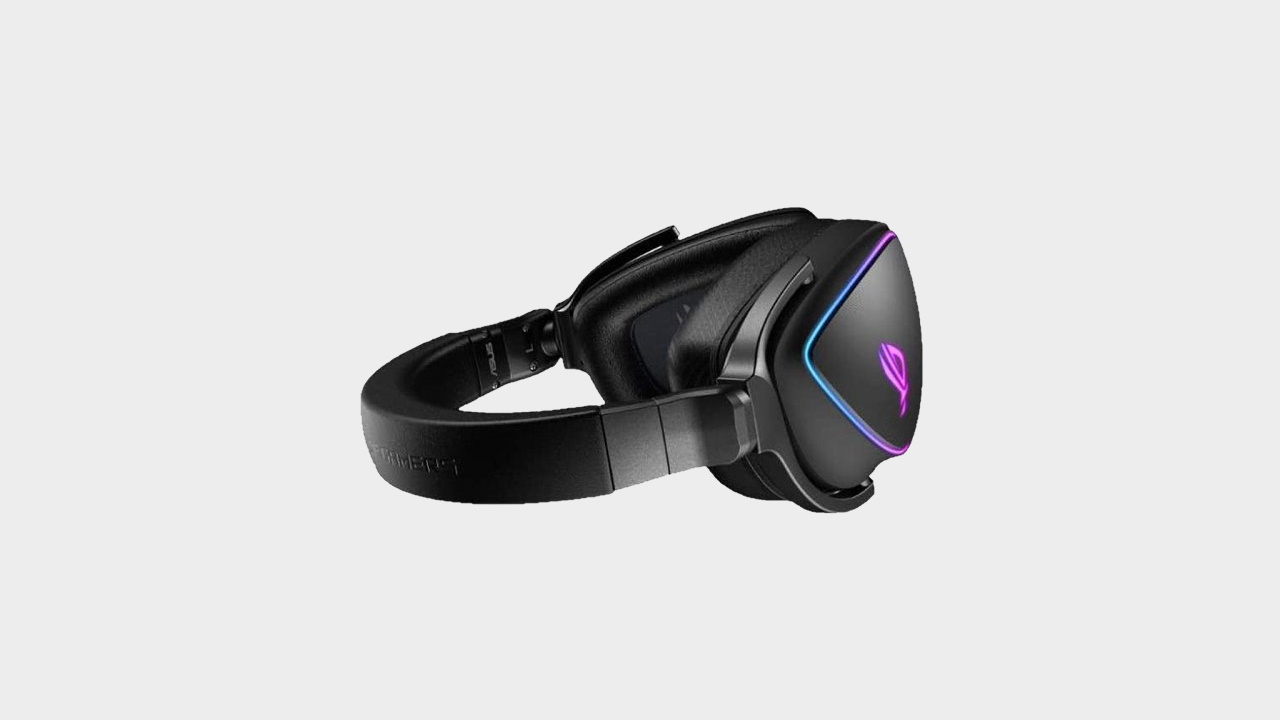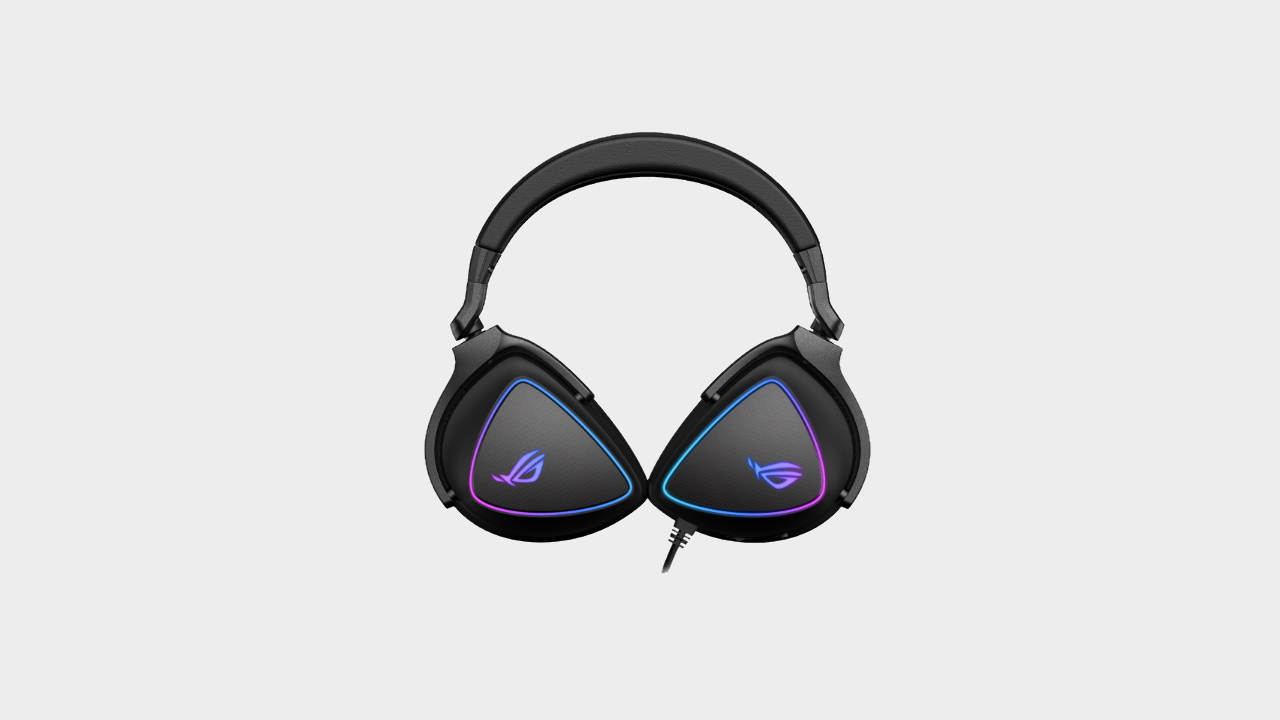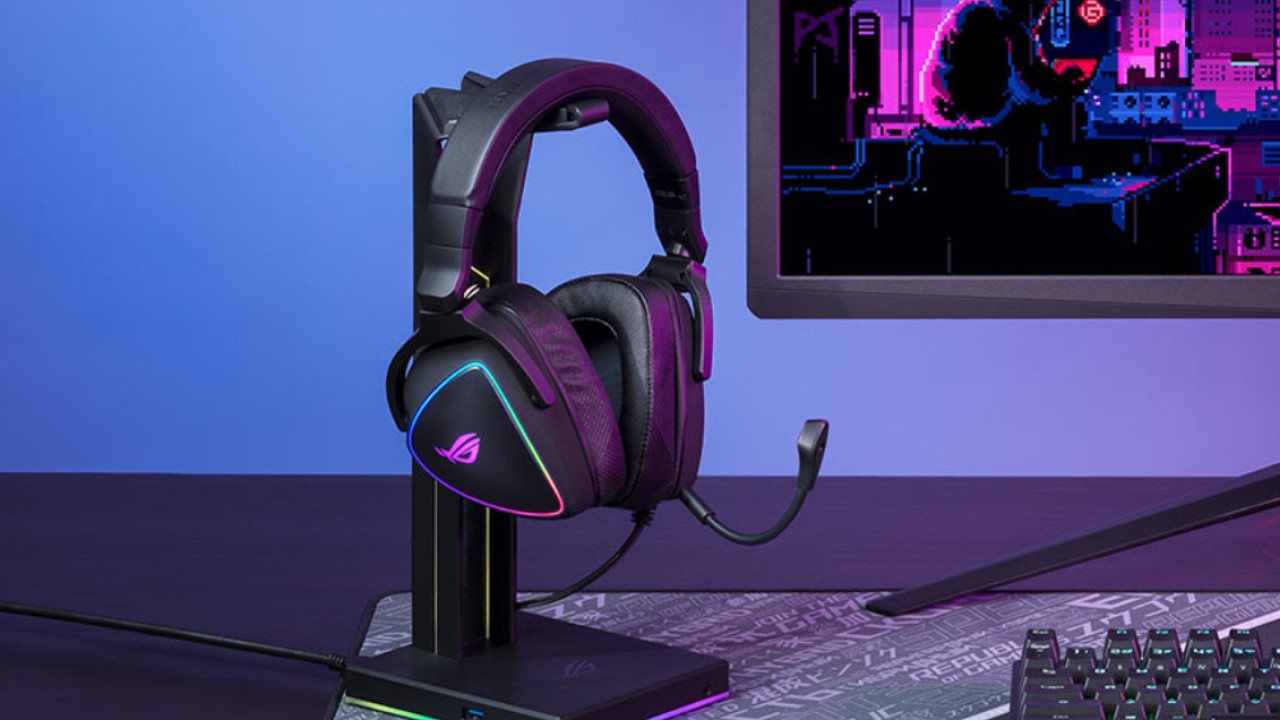GamesRadar+ Verdict
The ASUS ROG Delta S has a lot going on under the hood, and once it's firing on all cylinders you'll certainly hear all that power at work. It takes a little TLC to get there, but if you're willing to spend some time at the control panel the results are beyond impressive.
Pros
- +
Lightweight and comfortable
- +
Plenty of customization options
- +
Excellent audio performance...
Cons
- -
...once the EQ is sorted out
- -
USB-C connection could be limiting
Why you can trust GamesRadar+
ASUS has added to its ROG lineup of PC headsets for gaming with the Delta S headset: a Quad DAC, MQA reading, RGB laden featherlight set of cups with some seriously impressive audio power under the hood. There's plenty on this spec sheet to get excited about, and a unique form factor to make sure things look as good as they sound as well.
The USB-C headset certainly impresses, and if you're willing to put the time in with its in-depth software you'll find excellent value for money here. A comfortable design makes for a sturdy companion to longer sessions and with some serious sound chops music lovers will also be pleasantly surprised on seeing this sub-$200 price tag.
Design
There's no doubt about it - this is certainly an ASUS ROG headset. From those triangular cups to the skinny RGB lining, you can't accuse ASUS of not playing to a gamer's aesthetic with the Delta S. It's not all about looks here, though.
Weighing in at just 300g overall and with roomy, memory foam-laden cups, you'll certainly be well equipped for longer sessions here. Each cup rotates flat to store away but also has around 10 degrees of freedom when rotating in the opposite direction as well, to cater for a good range of fits and positions.

It's true, you won't be taking much notice of the RGB circling the plastic outer shell of each cup when you're playing, but the result is super clean and will add an extra pop of color to streams. Not only that, but you'll be able to toggle between the standard full rainbow and more of a wave effect straight from a switch on the left cup. Those RGB options are seated on a sparse set of onboard controls, accompanied only by a volume switch that doubles as a mic mute.
The whole headset is certainly distinctive and feels durable while also feather-light. That's all courtesy of slimline plastic cups and a steel frame with a fully cushioned memory foam headband as well.
Features
While you might not guess it from the price tag, you're picking up some serious audio features under the hood here. ASUS has updated its Quad DAC technology for the Delta S, offering enhanced processing across four ranges, each with its own dedicated chip. That's some considerable horsepower sitting inside a mid-range headset, and that power will certainly come in handy for a more chaotic soundstage while also serving your tunes particularly well.
If you are looking for a headset that can offer music as well as gaming audio, ASUS has put together an impressive proposition. As well as that new DAC, the Delta S also supports MQA files for studio-quality tunes. However, it's worth noting here that you might be limited by the USB-C input. That means you'll need to use an Android or PC with USB-C output (or USB-A through the adapter), rather than an iPhone or 3.5mm. A fun aside is that the headset has been designed to fit with the ASUS ROG Phone 3, so if you're in the market for one of the best gaming phones too, then there could be a match made in heaven here.
While it is wired, ASUS does put the Delta S's compatibility with the Switch and PlayStation 5 front and centre in some of their marketing, and given the quality here it really could be a great Nintendo Switch headset or the best PS5 headset for some. Though, of course, you will need to measure the distance between your console and seating position given the fact you'll be plugging directly into your console for this one.

All the tech is complemented extremely well by ASUS's audio software. The Armoury Crate offers a massive array of controls for fine-tuning almost anything about your sound. That means you'll have access to individual levels for both music and games, with extra attention paid to bass, detailing, and vocals as well. Preset profiles cater for RPG, racing, and FPS genres, but these can easily be tweaked and saved for as well.
While you don't have access to this control panel on consoles, changes you make on PC will carry over when plugged in elsewhere. That's a nice feature that you don't often see in cross-platform headsets like this, but it's a little annoying if you like to switch between genres frequently on your PlayStation or Xbox.
Performance
All of that power combines to create an incredibly clear, detailed sound across genres and environments. Firing up Immortals: Fenyx Rising on PS5 - a game that packs a lot of audio into a single moment - and it's impressive to hear how well the Delta S can support a competitive soundstage. Battle encounters don't get muddled with the heavy background music and occasional dialogue cut in, and the fact that you can still hear the swish of a sword over the cacophony is testament to that processing power inside.
Straight out of the box with no EQ adjustment, however, the bass did feel a little lacking. A vocals-first default setting did initially threaten to take over the whole soundstage with higher ranges. Dialogue ran the risk of becoming too sharp, with a grating over-exposure that meant lower ranges flattened out.

However, fiddling with the controls meant each stun and defeat in Immortals felt as satisfying as those crashing bass hits should feel, and Typhon's voice was appropriately thunderous. With a little experimentation across levels, then, the ASUS ROG Delta S really opens up to its full potential.
When it comes to the Discord-certified mic, the story remains the same. It took some fiddling to find a fit that didn't buzz, as the positioning seems to naturally sit a lot closer than the muffler can take, especially during more hectic, higher volume Overwatch moments.
Overall - should you buy it?
The ASUS ROG Delta S hides some serious audio prowess to rival the best gaming headsets, but it is fairly well hidden. If you don't want to dive into EQ settings to find that perfect balance every time (however incredible that perfect balance will make your gaming experience), it's perhaps not the headset for you. Not only that, but the native USB-C connection doesn't make for the most flexible of devices.
That said, if you're willing to put a little time in with the software, the ASUS ROG Delta S transforms into a powerhouse that punches far above its price tag. We'd recommend this headset primarily for PC players then, because of that easy access to the control panel for on-the-fly adjustments, but console players will still find plenty of value here - with a PC on standby for EQ changes, though.

Managing Editor of Hardware at GamesRadar+, I originally landed in hardware at our sister site TechRadar before moving over to GamesRadar. In between, I've written for Tom’s Guide, Wireframe, The Indie Game Website and That Video Game Blog, covering everything from the PS5 launch to the Apple Pencil. Now, i'm focused on Nintendo Switch, gaming laptops (and the keyboards, headsets and mice that come with them), PS5, and trying to find the perfect projector.




